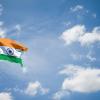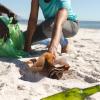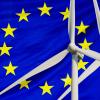IIASA is taking a leading role in promoting science diplomacy and fostering debates about how science can help build trust between nations and support foreign policies.
IIASA was established in 1972 with the aim to use scientific cooperation to build bridges across the Cold War divide and to jointly confront growing problems on an international scale. This was the result of US President Lyndon B. Johnson initiative to create such an international research organization, which found support from Soviet Prime Minister Alexey Kosygin. Negotiations took several years and led to the signature of IIASA Charter in London in 1972 by twelve founding National Member Organizations from Bulgaria, Canada, Czechoslovakia, East Germany, France, Italy, Japan, Poland, UK, USA, USSR and West Germany.
When the Cold War ended, IIASA broadened its mandate to achieve a greater global mandate. Today it continues to successfully provide scientific insight to policymakers worldwide by finding solutions to global problems through applied systems analysis. Building on its strengths, and within its overall research framework, IIASA delivers impact globally and to its member countries by helping them to strengthen bilateral and multilateral relations through science diplomacy and through scientific input to international negotiations.
With global problems becoming more complex and the world more divided, the concept of science diplomacy gained new traction. Science diplomacy is seen as a tool to foster relations between nations and as scientific support to foreign policies. Science diplomacy helps to ensure that foreign policies, as well as global policy efforts, remain informed by scientific evidence.
News

28 February 2023
Indian Ambassador visits IIASA

13 February 2023
French and Italian ambassadors visit IIASA

20 January 2023
Austrian Federal Minister for Education, Science, and Research visits IIASA
Pagination
Events
Potsdam Institute for Climate Impact Research (PIK) & Online
German IIASA Networking Event: "Systems analysis for a sustainable and peaceful future"
Articles
27 June 2024
Improving national SDG reporting through citizen science

27 June 2024
IIASA analysis underpins the European Commission’s 2040 climate target recommendation

11 November 2023
The IIASA Flagship Report: Illuminating the path to sustainable wellbeing

